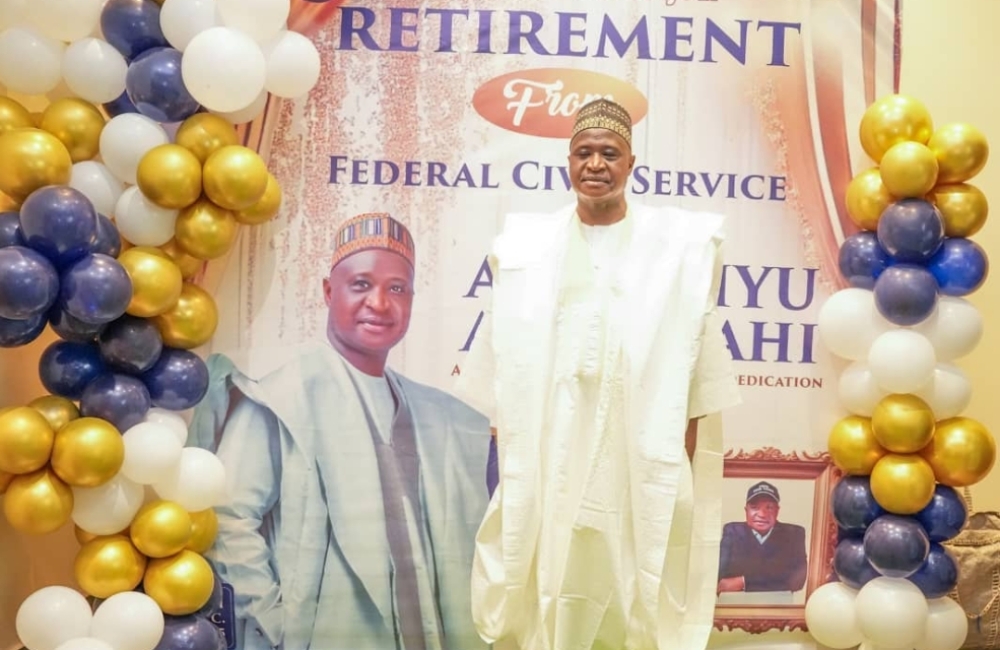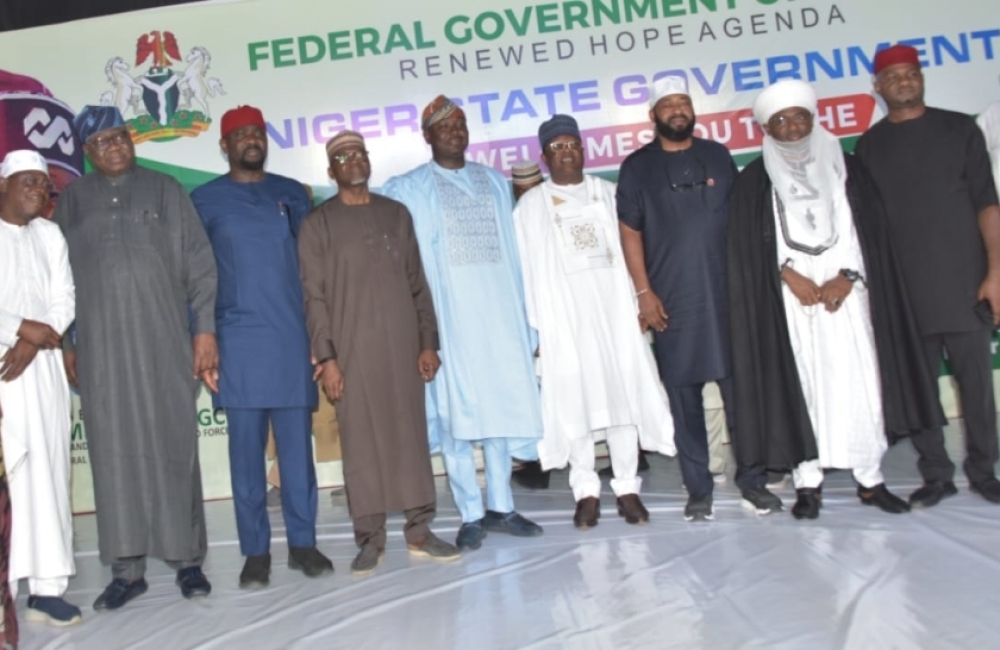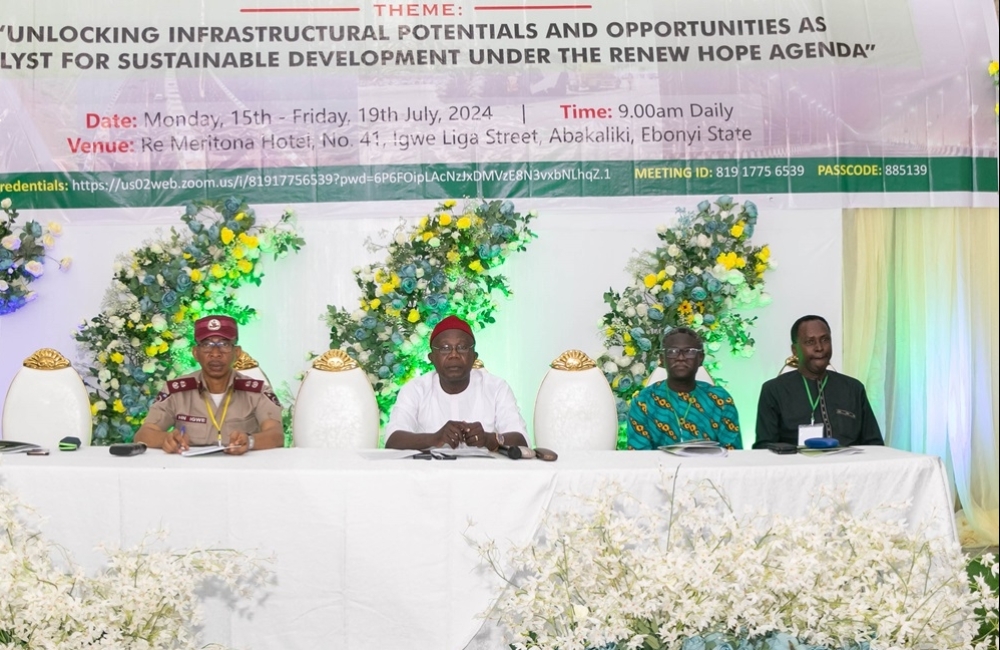Remarks By Babatunde Raji Fashola, SAN At The 20th Monthly Power Sector Operators Meeting Held In Owerri, Imo State
Once again it is my pleasure to chair this monthly meeting to review the progress we have made from our last monthly meeting in Lagos in September, and to collectively engage the challenges that lie ahead in our roadmap to incremental, stable and uninterrupted power.
At our meeting in September, we received reports of:
a. The successful connection of power to Magboro, Ibafo and neighbouring communities in Ogun state who had not been connected for about 10 years.
b. Provision of more meters to customers in Ijeshatedo, particularly on Ajijedidun Street, Adamolekun Street and Abiola Alao Streets where 196 out of 244 customers had been metered.
c. We also got reports of the progress that has been made to restore power to 16 out of 36 communities in Ondo North (Akoko Communities) and the challenges in Okitipupa.
Another other piece of information that is worth sharing is the conviction of one Okechukwu Anoke by the Federal High Court Abakaliki and sentencing him to 3 years’ imprisonment for tampering with electricity fittings.
We welcome this judicial support to stop corruption in the power sector, enforce the law and promote liquidity in the sector. This comes on the heels of similar support from no less an office than that of the Chief Justice of Nigeria who has issued practice directions for the full enforcement of Arbitration clauses in power contracts so as to take such cases out of the tedium of regular trial and place them in the hands of commercially sensitive adjudicators.
On behalf of the entire sector we welcome the intervention in the Court of Appeal in the case involving the tariff review.
The order of the Trial Court which declared the tariff setting process illegal has been reversed and the case is now to be tried afresh.
Before I leave the issue of the critical role of the judiciary and law enforcement in the power sector, let me point out that the efficacy of the practice directions issued by the CJN for the strict enforcement of Arbitration clauses does not rest with the Judicial officers alone.
The Nigerian Bar Association has a pivotal role to play in ensuring that Arbitration clauses are enforced. This is because it is often the Lawyers, not the clients, that file and initiate processes that invoke the jurisdiction of the Court.
It seems to me that there might be something that potentially crosses the line of ethics which should arouse the interest of the Bar Association if one of its members fails to avail a client of his rights under an Arbitration agreement.
That said, I will proceed to inform members that in the last month, we have recovered 100MW from the damaged Afam IV Power Plant which was inoperative since January 2015.
Similarly, TCN has energized the Jebba-Kainji 2nd 330KV line and the 2nd Ajaokuta-Abuja 330KV line both of which were inoperative since 2015.
In the last month also, specifically on Wednesday 4th October 2017, the Federal Executive Council approved the verified sum of Federal Government MDA debts of N25.9Billion, and its payment by setting it off against the debts owed by the DisCos to NBET.
You will be receiving official communication of how these have been applied to reduce debts owed by DisCos to NBET.
We are also making promising progress in recovering debts due from international Customers and you will be notified of how much has been received when the appropriate accounts confirm that they have received value for the credits we have been notified of.
It is against this background that I now move to the challenges which we still have to overcome; the more pressing of which is how the DisCos can quickly increase their capacity to take power and distribute to the consumers.
I think that this is the issue that is captured in your letter of 27th September 2017 titled, ‘Federal Government of Nigeria’s Initiatives in the Electricity Sector and the Impact on Electricity Distribution Company Activities,’ which was addressed to NERC and copied to me.
Let me commend DisCos for the decision to channel their complaints to NERC by a jointly signed letter. This is a welcome departure from the previous order and it is to be encouraged.
The substance of Government initiatives which prompted that letter can be summarised as follows:
a. Provision of meters to consumers through licensing of meter suppliers
b. Provision of more power to consumers through licensing of eligible customers
c. Provision of Independent dedicated Power to Universities
d. Promotion of the deployment of more solar power through mini-grids
e. Expansion of the Distribution Network of the DisCos so that they can take about additional 2,000 MW of power now available for supply
Without a doubt, the initiatives are targeted at improving service to the people. In your letter under reference copied to me, you expressed concerns about the impact of these initiatives on your businesses.
It is not my understanding that you oppose them, which is commendable.
It is my understanding that you fear that you will lose some income or some customers if Government proceeds; and on the question of meters, you seek to have technical compatibility with what the licencee will operate.
In respect of possible investment in Distribution equipment you seek that Government should route the investment through the DisCos.
Understandably you are concerned about investment recovery and in your views, the solution is a tariff review.
While your concerns about business viability, financial stability and cost recovery are well understood and indeed supported by the Electric Power Sector Perform Act of 2005 (EPSRA) which Government will respect; I must point out that Government’s focus is also strong on the issue of service to the people.
There must be a balance somewhere in the middle.
As far as the promotion of solar and other sources of independent power are concerned, please note that not only are they supported by the ESPRA, they are consistent with our Paris Climate Change Agreement Obligations and with emerging global practice.
DisCos have nothing to fear about solar. It is a space in which they are entitled to play but in which they cannot exclude others from playing.
The ESPRA did not contemplate a monopoly for any licensee unless it is expressly stated in the license.
As for channelling investment into Distribution assets through the DisCos, Government has not yet taken a position on what the best way forward will be.
However, Government is clear that a solution must be found quickly to the inability of DisCos to take about 2000 MW of power that will imminently increase as we get more incremental power.
But the point that must be made is for all of us to remember that, Government is a 40% shareholder of the DisCos (on behalf of the Federal, State, Local Governments and Workers) and therefore has a self-benefitting interest in the wellbeing and efficiency of the DisCos.
Most importantly, the concerns contained in the letter under reference can and will be managed through consultations which NERC has been undertaking to my knowledge. Consultations will help to build consensus about how best to serve customers, instead of festering gulfs of Disagreement.
At this preliminary stage therefore, you letter and concerns focus first on the business, while the Government initiatives focus more on service.
Consensus should give us both; the service and the business.
Still on the matter of DisCos, my attention has been brought to the fact that Yola DisCo has not been actively participating in the affairs of your association.
My position about your right and freedom to associate has been publicly stated and so is the right of the Government to associate or dissociate with you by lack of recognition or grant of recognition.
Because rights are not absolute and because they impose duties, all I need say is that we must respect the right of Yola DisCo to also choose whether it wants to associate or not. That is a duty we all have if we must enjoy the freedom and right to associate.
I will also want to report the successful holding of our National Council on Power, the 3rd in the series hosted by Plateau State who used the opportunity to present Rural Electrification Road Map to all of us.
I will like to thank Governor Simon Lalong for hosting us , and all of you for participating and urge that you follow up with the State Governments to assist you in enforcing the law against energy theft, right of way protection, metering of state government offices and buildings, the verification and prompt settlement of bills.
Finally, I would like to refocus our attention to the order signed by the NERC which reduced the timeline for making (New) Electricity connections from 145 days to 40 days.
While DisCos are also expected to comply and file reports of compliance to NERC and copied to my office, the Presidential Enabling Business Environment Council (PEBEC) has advised that the focal DisCos that will affect Nigeria’s ease of doing business rating will be Lagos, Ikeja, Kano and Kaduna because of the sample size that the population they serve represent.
Thank you for your attention.
Babatunde Raji Fashola, SAN
Honourable Minister of Power, Works and Housing
Monday 9th October 2017







